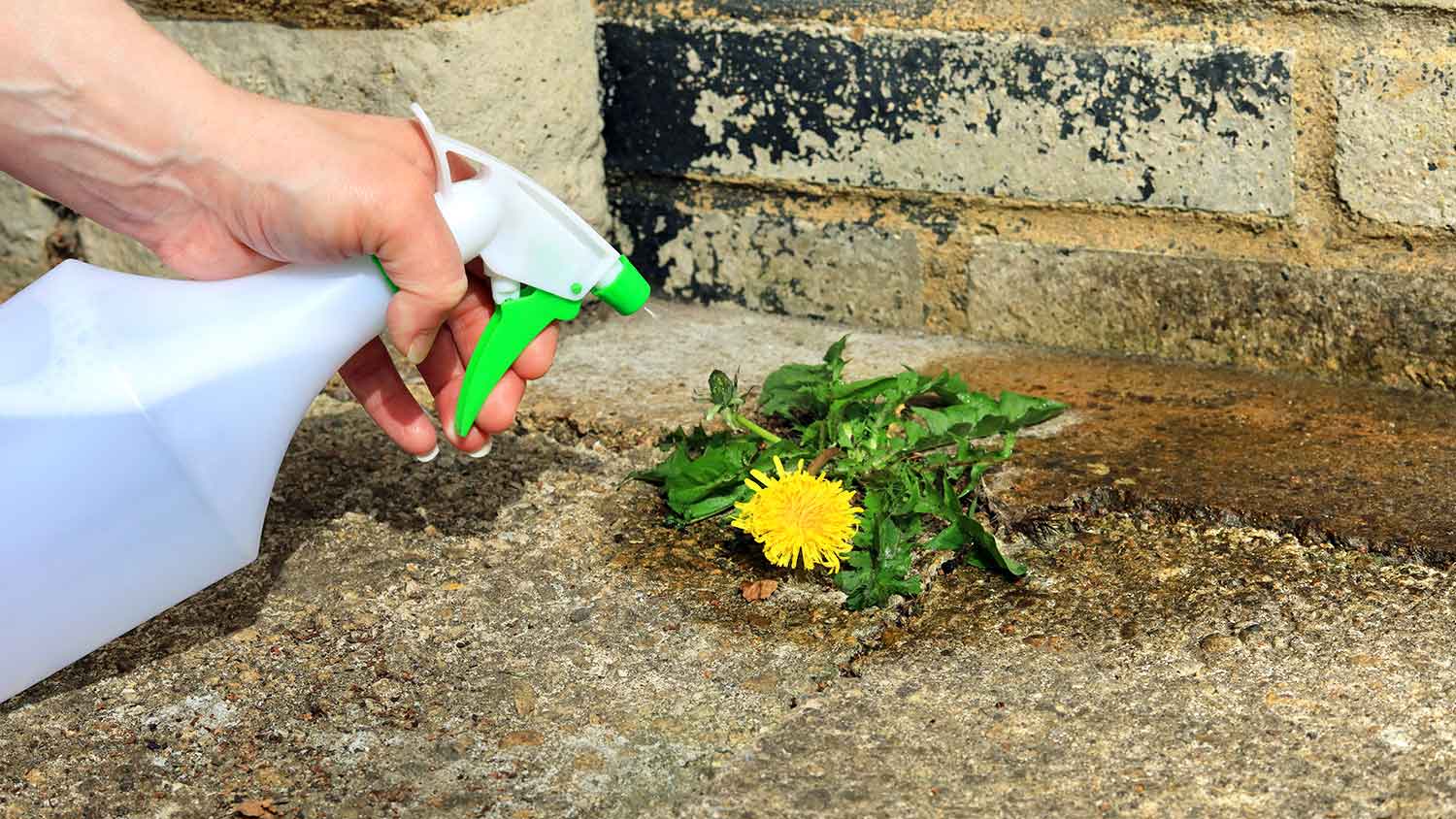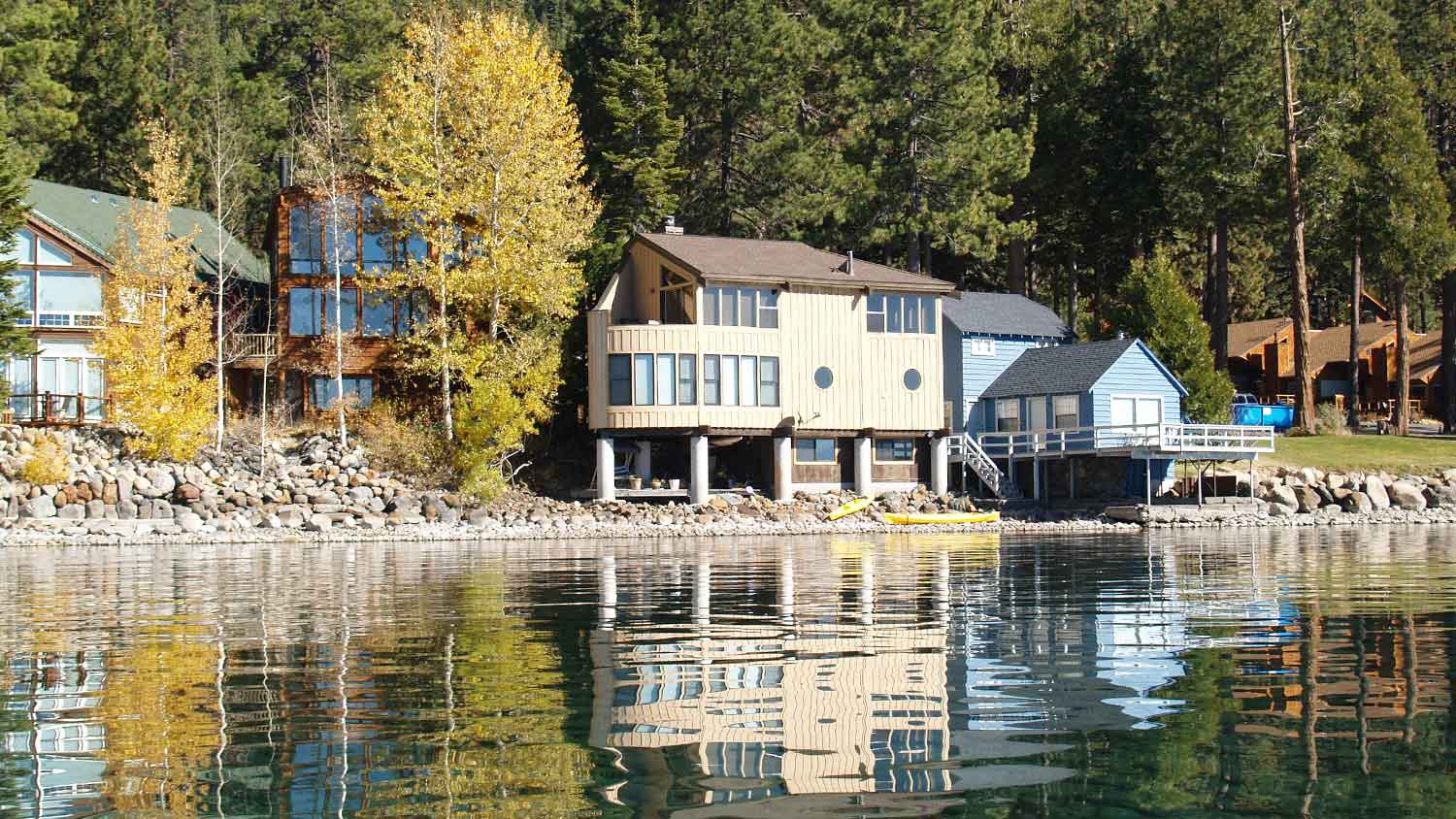
A landscape designer can elevate your outdoor space and bring your vision to life. Use this landscape design cost guide to budget for your next project.
Proceed with caution when using this contact herbicide


Vinegar can be effective at killing grass and weeds, drying them out completely.
Spreading vinegar on your lawn is risky because it can damage other plants that it comes in contact with.
Whether you are trying to get rid of weeds or snuff out stubborn sprouts of grass in the cracks of your sidewalk, you may be wondering whether you can use vinegar to kill grass. Many homeowners turn to DIY methods such as vinegar to get rid of weeds or grass growing in unwanted spots. Learn the effects vinegar has on grass and how to use it effectively.
Vinegar with a high acetic acid concentration (5-20% acidity) can kill grass. When vinegar is applied to grass and weeds, it can cause them to dry out and die. However, the downside is that vinegar can damage anything green that it touches. So if you accidentally spray vinegar on other types of plants or flowers, it can burn the foliage and kill them.
Another issue with vinegar is that its acidity can harm the soil. Vinegar can lower the soil pH, making it too acidic for plants to grow. So, it's essential to use it correctly and avoid using it near flower beds and gardens.
Vinegar starts working pretty quickly and, in some cases, can kill weeds and grass within a day or two. However, the speed and effectiveness depend on factors such as the type of grass and weeds and the type of vinegar.
For instance, agricultural vinegar contains acetic acid levels between 20% and 30%, while white vinegar's acetic acid levels are around 5%. So, if you use white vinegar with lower acetic acid levels, it may not work as quickly and also take more applications.
While vinegar does kill weeds and grass, it may not be the best solution for various areas you need to remove weeds from. Vinegar can damage and kill anything it contacts, including flowers and other plants. It's not recommended to use vinegar to kill weeds in your yard because it will kill the grass, too, leaving dead spots behind.
Instead, consider hiring a lawn care professional near you to eradicate unwanted weeds and grass without harming your gardens and yard. That way, you can ensure high-quality and long-lasting weed results without risking the health of your lawn.

If you decide to try using vinegar to kill grass and weeds in areas such as a gravel driveway or sidewalk, it's relatively easy to do. Vinegar can be a natural way to get rid of pesky weeds and grass. But remember, you should not use it near any other plants.
You can purchase agricultural vinegar or mix up a homemade white vinegar solution and spray it directly onto the grass or weeds. Depending on the type of vinegar, you may have to make several applications to completely kill the grass or weeds. Ensure you spray carefully and never apply it near any beloved plants and flowers.
From average costs to expert advice, get all the answers you need to get your job done.

A landscape designer can elevate your outdoor space and bring your vision to life. Use this landscape design cost guide to budget for your next project.

Xeriscape costs depend on materials, the size of your yard, and if you DIY. This guide will help you determine what your xeriscaping project will cost.

We break down the cost to remove bamboo, which is slightly higher than other forms of tree removal. It's a difficult DIY task because of bamboo's hardy underground roots.

Riprap prevents erosion and protects your shoreline when done right. Learn who to hire for riprap and how to find a licensed professional.

What is a privet hedge and why should you consider it for your backyard? Use this guide to consider the pros and cons along with upkeep and maintenance tips.

What is the name of someone who designs landscaping? A landscape architect creates stunning, functional outdoor spaces with expert design skills.